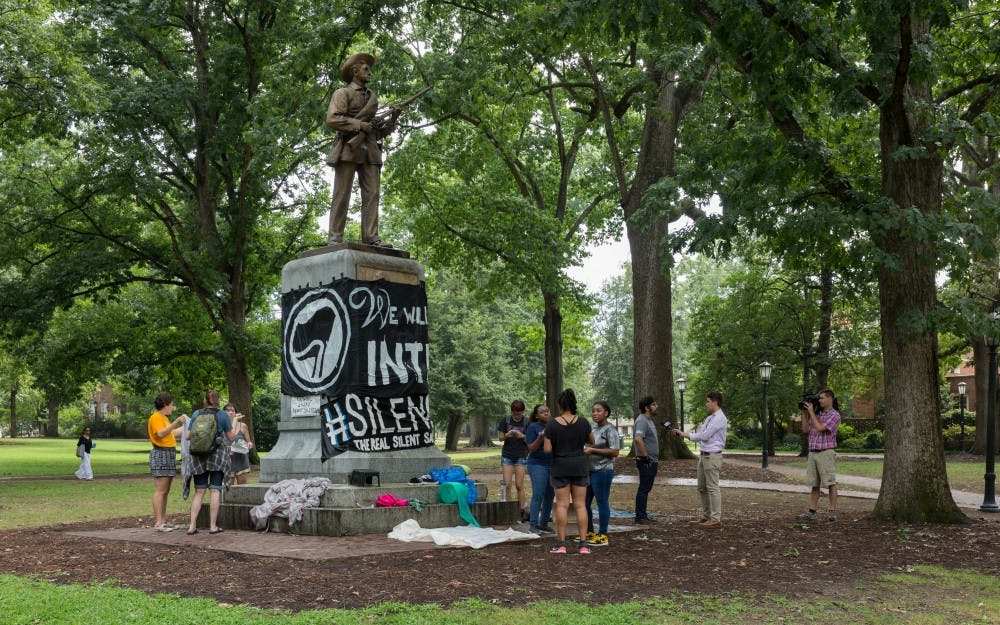The racial history underlying architecture and monuments ranging from Virginia to Chapel Hill, N.C., was discussed at a Tuesday event on campus.
Mabel Wilson, professor of architecture, planning and preservation at Columbia University, spoke at the event entitled "Let Live, Make Die: Monuments to a Racist State."
Here are some highlights from the talk:
Role of protesters: At Wilson’s alma mater, the University of Virginia, stands a bronze statue of the President Thomas Jefferson. By shrouding the likeness and placing signs reading “T.J. is a rapist and a racist” and “Black Lives Matter” next to the statue, she said the protesters “asserted the value and humanity of black life—qualities that anti-black racism had historically diminished or limited, or let die.”
Memorializing slave labor: Although Jefferson is memorialized in front of the University of Virginia's rotunda, Wilson noted the 15 slaves who made the bricks for the rotunda, as well as all the slaves who worked or lived on campus, are not officially memorialized. There is, however, an informal yet permanent memorial on the building's exterior: a handprint of one of the slaves, on one of the building's 900,000 bricks.
Civilian-farmer-soldier ideal: The statue of George Washington in Virginia's State Capitol Building—depicted with a cane, a plow and a sword—embodied the civilian-farmer-soldier ideal of the white, male colonial settlers who displaced Native Americans, Wilson said.
Implications of Jeffersonian neoclassical designs: Similarly, Jefferson viewed his push for neoclassical designs in Virginia—in the state capitol, his home Monticello and the University of Virginia—as promoting republican ideals, Enlightenment values and the intellectuals of ancient Europe. By extension, Wilson said, Jefferson's aesthetics promoted white male standards of beauty.
Silent Sam: After the University of North Carolina at Chapel Hill proposed to house Silent Sam—the controversial Confederate statue—on campus, Wilson described the move as tone-deaf.
“I think it should just be melted down and used for something else,” Wilson said. “It's just toxic.”
Get The Chronicle straight to your inbox
Signup for our weekly newsletter. Cancel at any time.

